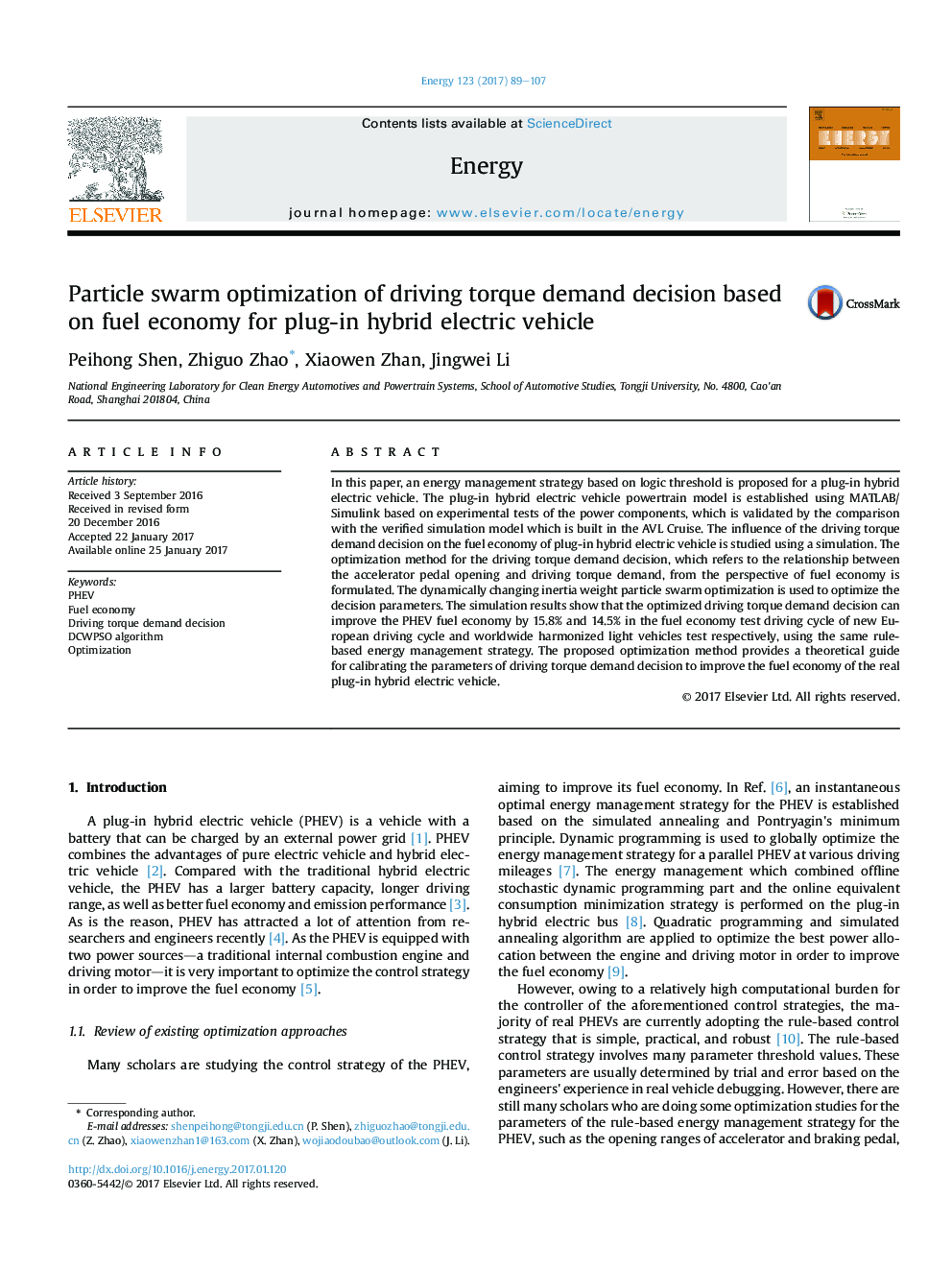| Article ID | Journal | Published Year | Pages | File Type |
|---|---|---|---|---|
| 5476083 | Energy | 2017 | 19 Pages |
Abstract
In this paper, an energy management strategy based on logic threshold is proposed for a plug-in hybrid electric vehicle. The plug-in hybrid electric vehicle powertrain model is established using MATLAB/Simulink based on experimental tests of the power components, which is validated by the comparison with the verified simulation model which is built in the AVL Cruise. The influence of the driving torque demand decision on the fuel economy of plug-in hybrid electric vehicle is studied using a simulation. The optimization method for the driving torque demand decision, which refers to the relationship between the accelerator pedal opening and driving torque demand, from the perspective of fuel economy is formulated. The dynamically changing inertia weight particle swarm optimization is used to optimize the decision parameters. The simulation results show that the optimized driving torque demand decision can improve the PHEV fuel economy by 15.8% and 14.5% in the fuel economy test driving cycle of new European driving cycle and worldwide harmonized light vehicles test respectively, using the same rule-based energy management strategy. The proposed optimization method provides a theoretical guide for calibrating the parameters of driving torque demand decision to improve the fuel economy of the real plug-in hybrid electric vehicle.
Keywords
Related Topics
Physical Sciences and Engineering
Energy
Energy (General)
Authors
Peihong Shen, Zhiguo Zhao, Xiaowen Zhan, Jingwei Li,
